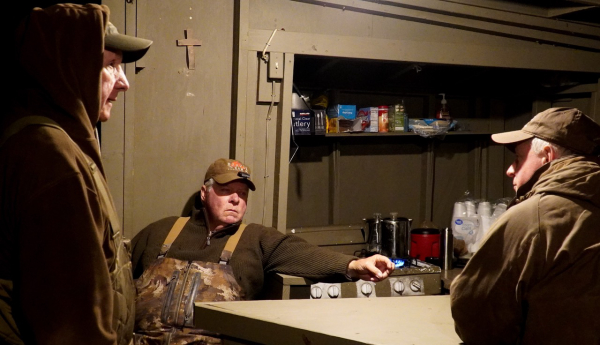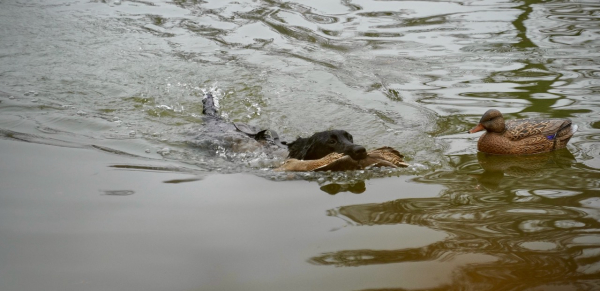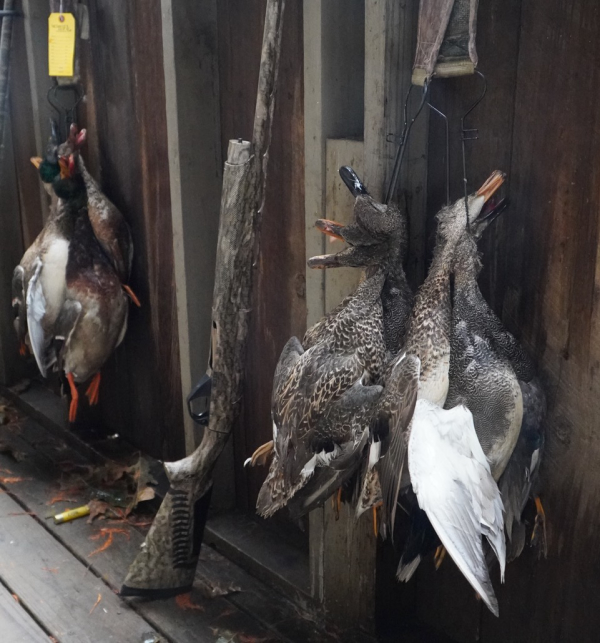Time spent in a duck blind is beneficial in many ways. Sitting in the dark offers time for reflection or visitation with hunters and guides about all matters, trivial or major. The option is yours. There’s not much judging done in the dark.

Watching as woods and waters awaken brings a heightened sense of awareness. You hear the brush rustling on the blind, the wind stirring the cypress tops and sounds of critters starting their daily routines.
The air is so clear and fresh that should this next breath be your last, it wouldn’t be what you planned for your morning, but it wouldn’t be the worst final breath you could take.
In a duck blind, things taken for granted elsewhere are things you learn to savor. Whether it’s the woods as they awaken or the smell of a pot of the guide’s coffee, everything is purer. Even drunk black, the styrofoam cup of “211 coffee” is memorable. What you don’t want to forget is the name (“211”) comes from the fact the well-used percolator on an even older gas stove heats the coffee to 211-degrees: “just short of boiling”.

The sense of actually living in the moment is so strong that you almost resent the guides starting to call.
But as their quacks and cackles commence, you realize they’re not just calling ducks, they’re calling us back to the oldest job in human history: hunting. It’s no longer a requisite for living, but it’s a direct connection to our predecessors. It’s a heritage missed by many, but a visceral connection with hunters.
Watching, waiting, then springing into action when your guide calls “take ‘em” your pulse quickens, vision tightens, and you operate your shotgun more out of primal instinct and practice than awareness.
With a little bit of luck, there’s a puff of feathers and a “plop” of water as a duck hits the water.
Then the retriever goes to work.

Watching as he swims out to retrieve a fallen fowl, you feel both exhilaration and remorse as you see the proof that you’ve reduced a flying creature to simple protein.
The feelings are fleeting, but when old hunters stop having them, they realize it’s time to leave the blinds, climb down from their ladder stands and stop their stalks. It’s a question few consider until it approaches.
Asking an older hunter or guide “when do you know it’s time to stop” can bring an awkward pause or a profound insight into life. It may also bring a realization that while good hunting days still lie ahead, there will be considerably fewer of them.

Those are only a few of the things you realize in a blind, but they’re all big lessons.
Other lessons are smaller, but much more practical:
—Un-lubricated shotguns run slower, unload harder and waste time. Lubrication makes life simpler.
— Putting gear on the counter isn’t the same as putting it into your shell bag. If it’s not in the bag, it’s still on the counter.
— If you forget your flashlight, the batteries never run down. But you’ll bang your head, drop something you need if you don’t have it. You may do those things anyway, but chances decrease if you can see.
— screws never back out if you have a screwdriver. But choke tubes will wiggle loose or weld themselves into place whether you have a choke wrench or not.
— too many shells are usually just enough. They may be heavy going in, but the bag will be lighter coming out.
— when layering your clothing, the windproof layer always goes on last.
— waterproof and water-resistant are not the same thing.
— hunting’s like competition, you can’t miss fast enough to get your limit.
— learn from the guides, don’t debate them. They know what works.
Life lessons come in all shapes, sizes and places.
But one’s always true: if you’re too-old to learn, you’re just too-old. I’m still learning.
We’ll keep you posted.
— Jim Shepherd